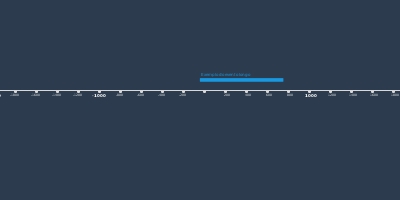Platão (jun 30, 428 BC – jul 1, 348 BC)
Description:
- Idealista.- Livros: República
- Assim como o homem é governado pela razão, deveria o Estado ser governado pelos sábios filósofos.
- Os trabalhadores devem obedecer aos sábios governantes que possuem os verdadeiros conhecimentos.
- Polis justa: é uma sociedade meritocrática, dividida entre Reis Filósofos, Guardas e Produtores, cada qual ocupando o seu espaço na sociedade.
- OBS: Platão pertencia a uma família aristocrática e influente.
Platão (em grego antigo: Πλάτων, transl. Plátōn, "amplo",[1] Atenas,[nota 1] 428/427[nota 2] – Atenas, 348/347 a.C.) foi um filósofo e matemático do período clássico da Grécia Antiga, autor de diversos diálogos filosóficos e fundador da Academia em Atenas, a primeira instituição de educação superior do mundo ocidental. Juntamente com seu mentor, Sócrates, e seu pupilo, Aristóteles, Platão ajudou a construir os alicerces da filosofia natural, da ciência e da filosofia ocidental.[10] Acredita-se que seu nome verdadeiro tenha sido Arístocles.[11]
Platão era um racionalista, realista, idealista e dualista e a ele tem sido associadas muitas das ideias que inspiraram essas filosofias mais tarde.
BIOGRAFIA
The philosopher came from one of the wealthiest and most politically active families in Athens. Ancient sources describe him as a bright though modest boy who excelled in his studies. His father contributed all which was necessary to give to his son a good education, and, therefore, Plato must have been instructed in grammar, music, gymnastics and philosophy by some of the most distinguished teachers of his era.
Birth and family
The exact time and place of Plato's birth are unknown, but it is certain that he belonged to an aristocratic and influential family. Based on ancient sources, most modern scholars believe that he was born in Athens or Aegina[c] between 429 and 423 BC. His father was Ariston. According to a disputed tradition, reported by Diogenes Laërtius, Ariston traced his descent from the king of Athens, Codrus, and the king of Messenia, Melanthus.[10] Plato's mother was Perictione, whose family boasted of a relationship with the famous Athenian lawmaker and lyric poet Solon.[11] Perictione was sister of Charmides and niece of Critias, both prominent figures of the Thirty Tyrants, the brief oligarchic regime, which followed on the collapse of Athens at the end of the Peloponnesian War (404–403 BC).[12] Besides Plato himself, Ariston and Perictione had three other children; these were two sons, Adeimantus and Glaucon, and a daughter Potone, the mother of Speusippus (the nephew and successor of Plato as head of his philosophical Academy).[12] The brothers Adeimantus and Glaucon are mentioned in the Republic as sons of Ariston,[13] and presumably brothers of Plato, but some have argued they were uncles.[14] But in a scenario in the Memorabilia, Xenophon confused the issue by presenting a Glaucon much younger than Plato.[15]
The traditional date of Plato's birth (428/427), the year after the death of prominent Athenian statesman Pericles, is based on a dubious interpretation of Diogenes Laërtius, who says, "When [Socrates] was gone, [Plato] joined Cratylus the Heracleitean and Hermogenes, who philosophized in the manner of Parmenides. Then, at twenty-eight, Hermodorus says, [Plato] went to Euclides in Megara." However, as Debra Nails argues, the text does not state that Plato left for Megara immediately after joining Cratylus and Hermogenes [16]. In his Seventh Letter, Plato notes that his coming of age coincided with the taking of power by the Thirty, remarking, "But a youth under the age of twenty made himself a laughingstock if he attempted to enter the political arena." Thus, Nails dates Plato's birth to 424/423.[17]
According to some accounts, Ariston tried to force his attentions on Perictione, but failed in his purpose; then the god Apollo appeared to him in a vision, and as a result, Ariston left Perictione unmolested.[18] Another legend related that, when Plato was an infant, bees settled on his lips while he was sleeping: an augury of the sweetness of style in which he would discourse about philosophy.[19]
Ariston appears to have died in Plato's childhood, although the precise dating of his death is difficult.[20] Perictione then married Pyrilampes, her mother's brother,[21] who had served many times as an ambassador to the Persian court and was a friend of Pericles, the leader of the democratic faction in Athens.[22] Pyrilampes had a son from a previous marriage, Demus, who was famous for his beauty.[23] Perictione gave birth to Pyrilampes' second son, Antiphon, the half-brother of Plato, who appears in Parmenides.[24]
In contrast to reticence about himself, Plato often introduced his distinguished relatives into his dialogues, or referred to them with some precision: Charmides has a dialogue named after him; Critias speaks in both Charmides and Protagoras; and Adeimantus and Glaucon take prominent parts in the Republic.[25] These and other references suggest a considerable amount of family pride and enable us to reconstruct Plato's family tree. According to Burnet, "the opening scene of the Charmides is a glorification of the whole [family] connection ... Plato's dialogues are not only a memorial to Socrates, but also the happier days of his own family."[26]
https://pt.wikipedia.org/wiki/Plat%C3%A3o
Added to timeline:
Date:
jun 30, 428 BC
jul 1, 348 BC
~ 80 years
